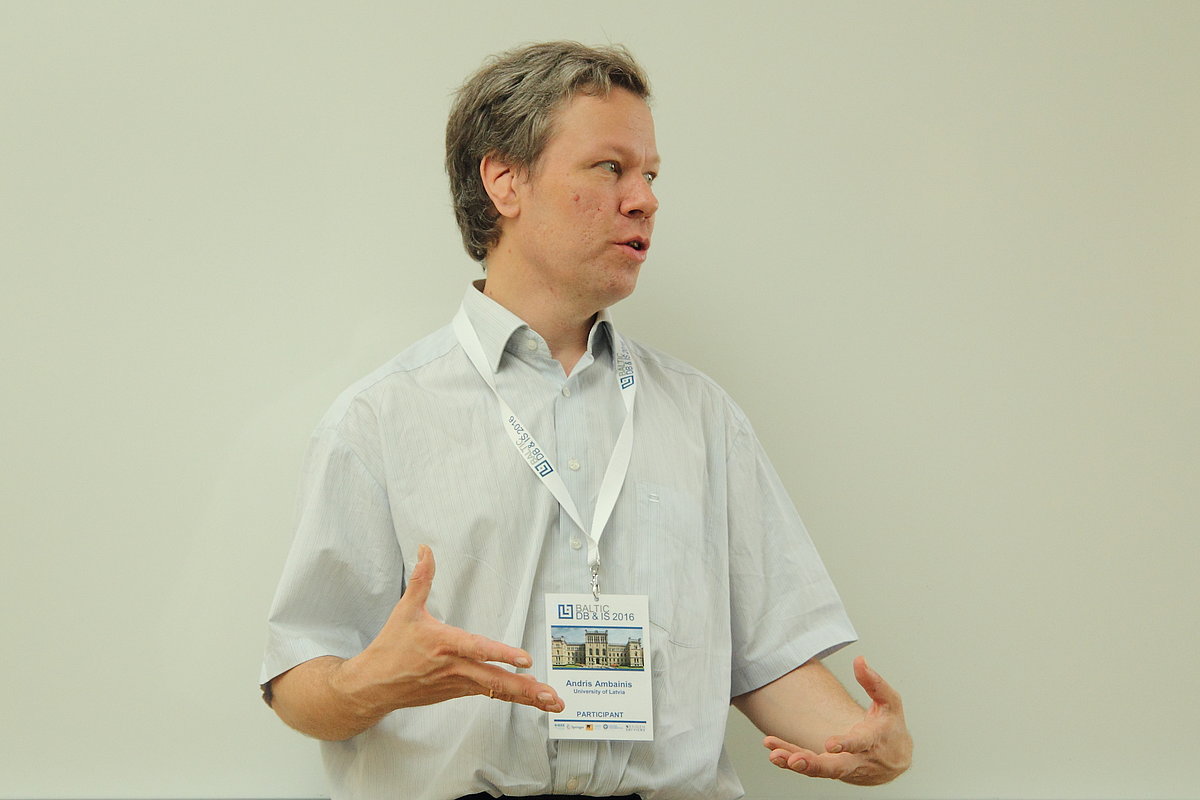
Figuratively speaking, if a modern computer were to be compared to a bicycle, a quantum computer would resemble a spacecraft. Both in the good and the bad sense. A spacecraft can travel faster and farther, but you cannot drive it in the street. And, of course, it is also incomparably more expensive and more complicated. There are few people in the world who really understand quantum computing. And disproportionately many of them live in Latvia.
All that is due to internationally renowned mathematician Andris Ambainis, who created the Quantum Computing Centre at the University of Latvia.
"I have been interested in mathematics since childhood, from the time when one does not really understand what the mathematician is doing in his professional life. There is a legend in my family that when I as a child was taking a walk with my grandfather, I was leading him to house numbers, trying to understand how they change," A. Ambainis says in the programme.
The interest in computers evolved during the university years. Absorption in quantum physics joined later, after A. Ambainis attended a quantum computing course.
"A quantum computer is a computer based on quantum physics, and quantum physics is a subject that explains the laws of nature at a level of atoms and particles. There are things that function differently on this microscopic level, they can be described with such simple principles of logic or, more precisely, the principles of the probability theory, and then one can take those principles and imagine, what a computer based on them would look like. And then it turns out that such a computer can calculate certain things faster than a regular computer," professor explains.
After years of studying and working abroad, Ambainis returned to Latvia, creating a quantum computing research team here, at the University of Latvia. “Latvia is my home, I like to live in Latvia, human relations, all that made me return to Latvia after nine years. Yes, as a person I am closely tied to this country. [..] Here in Latvia I can help others find their way in quantum computing. There are many young scientists who have come here, about 15 work in my group, and many of them are very capable and at present can create very interesting things in this area themselves. In Berkeley, my added value would not be the same. Students who are there would navigate their path in science anyway."
Ambainis is also the only scientist in the Baltic states who has received the European Research Council (ERC) grant awarded to outstanding scientists - 2.5 million EUR.
"The problem that science of Latvia lacks funding is real. If I look at my centre, every three, five years there are times when I do not know whether in a year I will have any funding. So far, everything has gone well, but realistically it may happen that even a very good scientist in Latvia suddenly does not have any funding. These problems are much more acute than those encountered by the same scientist somewhere in America," notes A. Ambainis.
Ambainis predicts that only ten or twenty years stand between us and extensive use of quantum computers. However, the team of scientists in Latvia does not attempt to build their own quantum computer. The team invests its efforts in considering what these computers will be able to do when they are built.
"It is interesting to build a quantum computer when you know that something can be done with it. Let's say, if we look at 1990, before I entered this sphere, quantum computers were studied by 10 scientists-adventurers around the world. And nobody tried to build them. And what changed in the coming years was that the first potential uses were shown on the paper," emphasizes the professor.
Watch the news release HERE.

 CONFERENCE
CONFERENCE